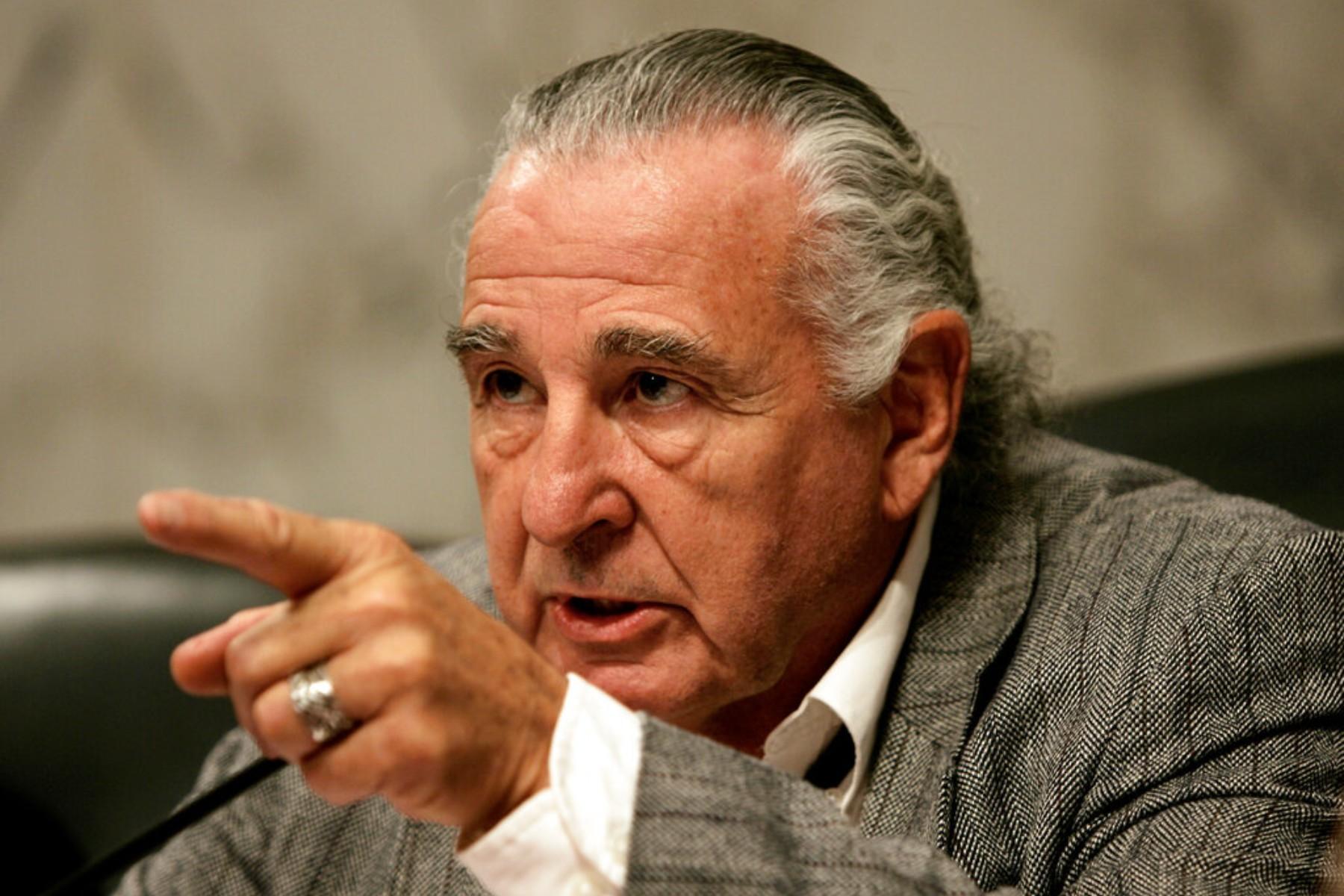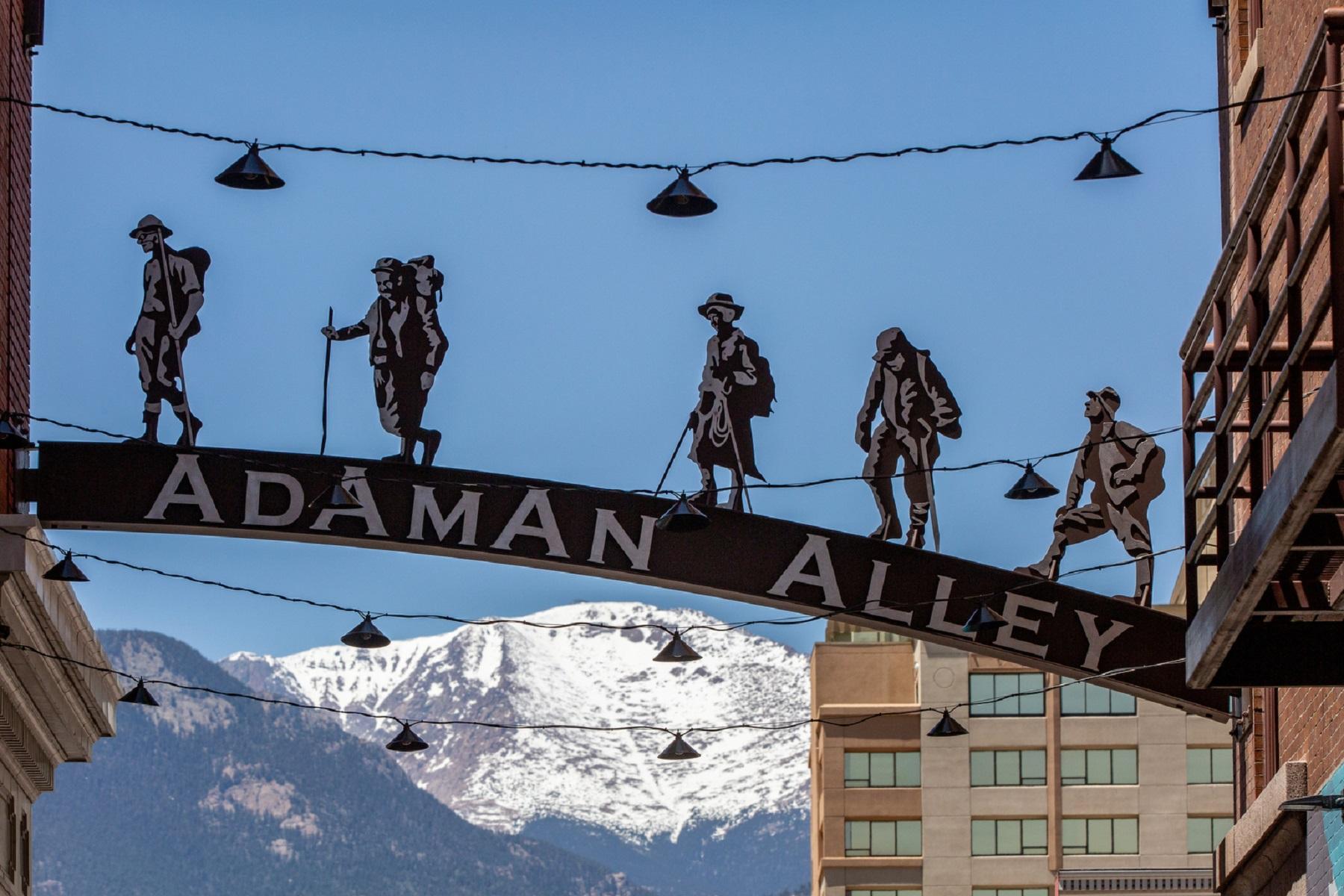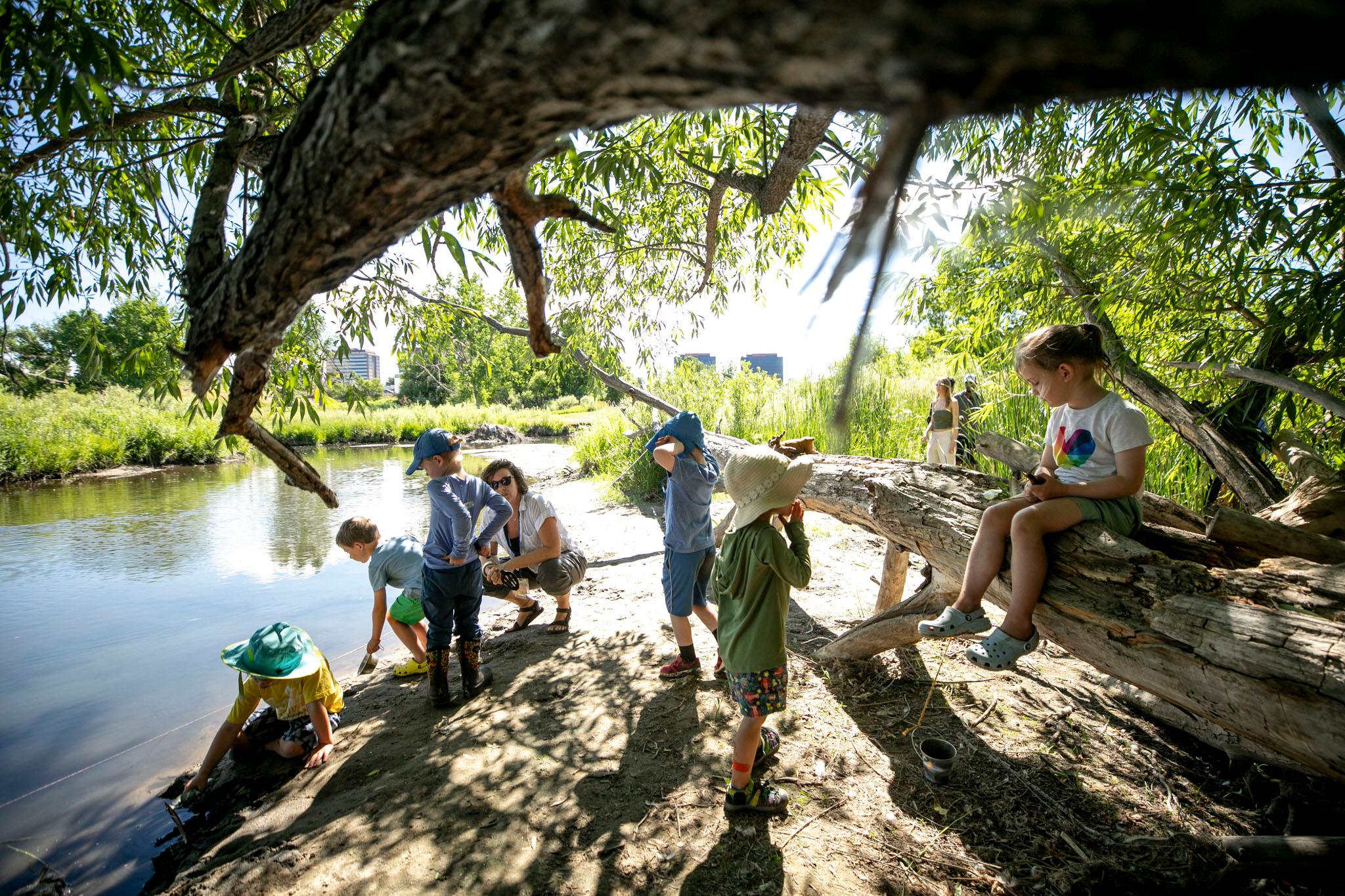
Two kids amble down a trail through prairie grasslands, joining their preschool classmates under a shady tree. They’re welcomed with their ‘wild’ names.
“Good morning, Rabbit Brush! Good morning, Rabbit Brush, we’re glad you came today!” the children sing to greet their friends.
At first, it seems similar to a conventional preschool. There’s story-time. Kids are painting. There’s singing. But the song these 3- to 6-year-olds sing is about things like mycelium and nematodes and taking care of the planet – and is partly in the Maori language.
“Tane Mahuta/ Guardian of the forest/ We’re planting seeds/ Thinking of Amazing Grace/ Mycelium and mycorrhizae/ Tree roots, soil and nematodes too!”
The biggest difference is this preschool takes place entirely outside near a wetland in Denver. It’s one of about 45 outdoor preschools that are part of the Colorado Collective for Nature-Based Early Learning.
Most are currently operating with a licensing exemption. However, a new state law will allow them to get a license customized to the unique needs of operating a school outdoors. Why is licensing important?
“It provides access for parents and reliability,” said Jennifer Kollerup, a director at the collective. “They can find programs, they can count on programs to be in consistent operation.”
It also means that lower-income children and those with special needs could tap into Colorado’s universal preschool program, and get up to 30 free hours at outdoor preschools.
“So, programs that want to do UPK will be able to access those funds. Part of the industry that's very traditionally been upper or middle class would be accessible to many more types of families.”
Nature schools are expensive to run and not very diverse. But they’re growing in popularity – with several more states considering licenses. Carin Rosa with the Colorado Department of Early Childhood told lawmakers that Colorado, the second in the nation to offer licenses, will pattern its site-specific licenses after Washington, the first.
“A program in City Park with access to an indoor museum for inclement weather and a program in the high mountains in a more remote nature reserve will have different needs to ensure children’s safety,” said Rosa.
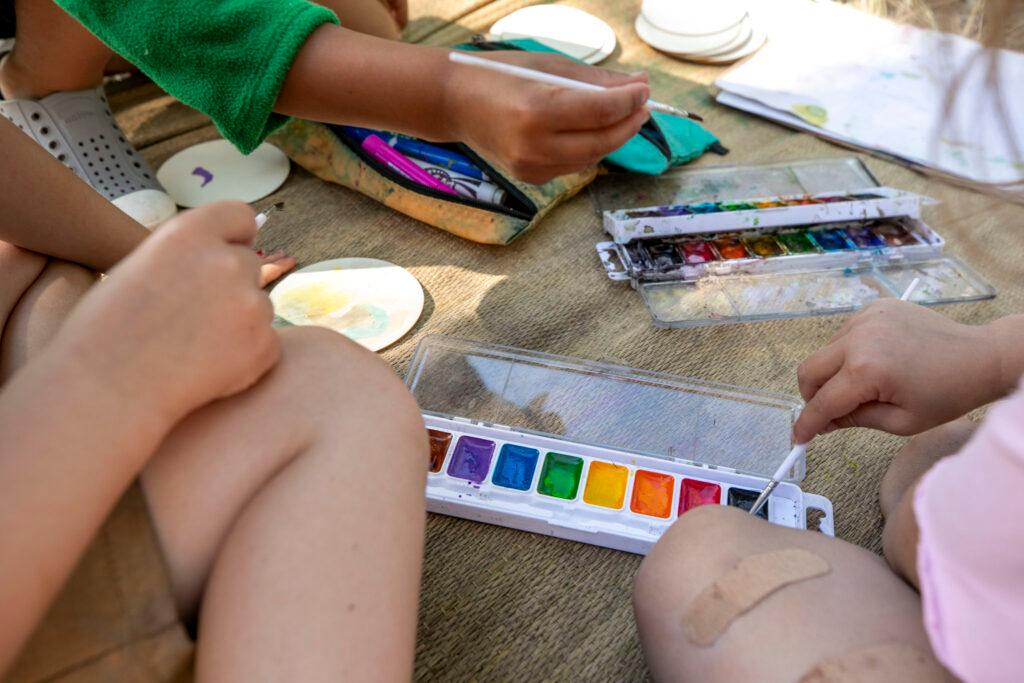
Colorado has until the end of next year to develop rules for outdoor preschools, like what to do in weather emergencies. The new law directs the state to collaborate with existing outdoor programs – many with leaders who have years of experience teaching on the land — to implement training using a process for identifying hazards and risks but still allowing kids to do what generations of children before them learned on their own: climbing trees, using simple tools and exploring.
“We're really excited to have an opportunity to say, ‘Here's how other and new programs can come into this work and make sure that they're also operating with best practices,” said Kat Owens, an outdoor preschool expert and member of the collective. “How we operate these programs and the integrity of the pedagogy that we were trained in is really important.”
Down by the creek
When I approach a few kids past a juniper and cottonwood grove near the shallow shoreline of Denver’s Cherry Creek, Oliver, 4, gives me a stern warning.
“We cannot go past the boundary!”
He points to the rope along the shoreline. Safety is paramount here and kids know the rules.
“Under the mud, if you take your shoes off we have these things,” he points to a tiny, dead crustacean.
“They’re called….crawdads!” he said excitedly.
The children have created a little experiment. Feathers stand upright in the mud next to the dead crawdad. Which will attract the muskrat that lives in the holes of a nearby hollowed out tree? The feather or the crawdad? The children pat and sculpt the mud to make troughs should the semi-aquatic rodent decide to travel to their hole.
A defining characteristic of outdoor preschools is children are seen as competent and capable. They nurture children’s curiosity. The children are observant. They see a hawk’s nest. They examine pieces of wood and rocks. They measure sticks and blades of grass.
A number of studies have shown faster cognitive development in children attending outdoor preschools, better motor coordination and even boosted immune systems. Math and learning new vocabulary happen organically here.
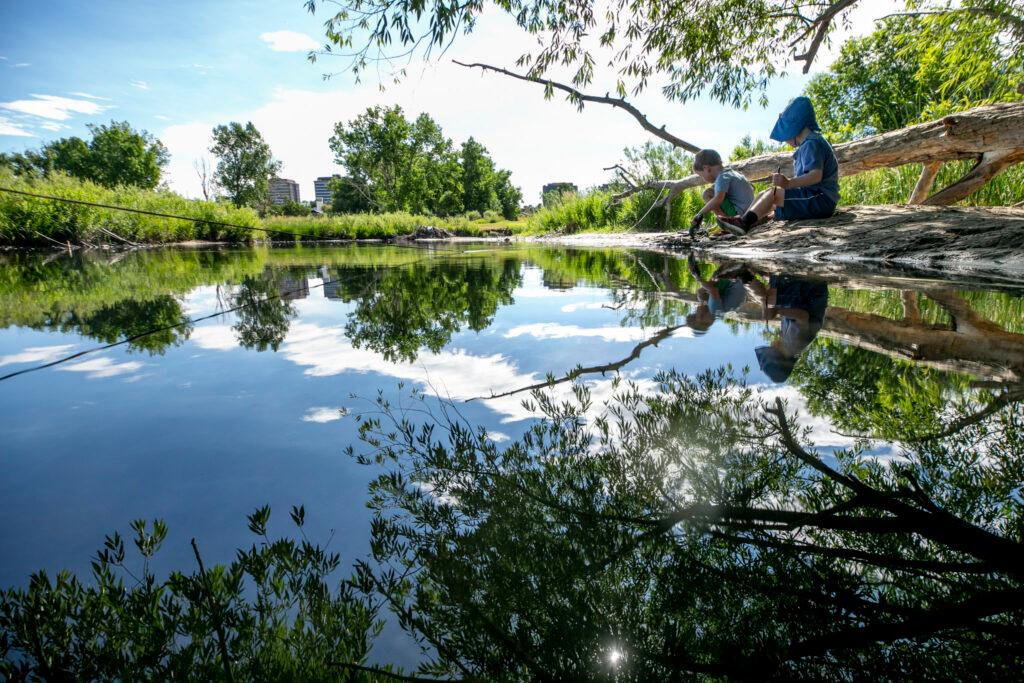
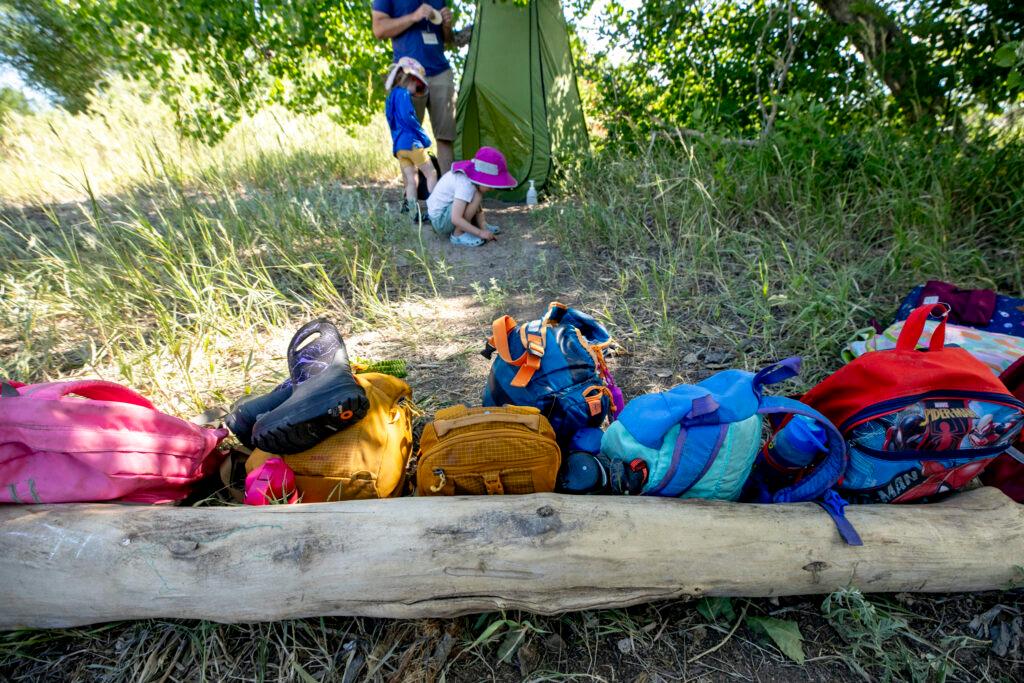
Under a nearby tree, teacher Jess Whitney sits with a girl while another swings gently on a tree swing.
“If you had three prickly pears in your leg,” she asks the girl, “and Miss Kat came and picked one out and Miss Jess came and picked one out and Mr. Jon picked one out, how many prickly pears are left in your leg?”
“None!” exclaimed the girl.
“None! Zero!” said Whitney.
Whitney said there are a lot of early readers.
“Because they’re out here with the inspiration that nature kind of allows them to open to more and more things,” she said. “It opens their curiosity a lot further than the white walls of a classroom would.”
Matt Hebard, who founded the Denver Forest School but who now lives in Alaska, said children’s curiosity drives the day.
“Let them be children,” he told lawmakers when he testified for the bill. “They are only young one time in their life.”
But the main goal of outdoor preschools is letting kids choose how they want to play and explore
Teachers are guides helping kids connect with their environment and giving them skills to do something many of us learned on our own like how to climb a tree.
“You think it’s just for fun but it really works on their cognitive function, on how their own motor skills are moving, and how their balance is working, problem solving and bravery,” said Whitney.
She said they don’t baby the kids. They teach them skills — like how to get down from a tree.
“We’re giving them skills to build their confidence in their own truths, in their own bodies rather than looking to someone else to see how far they can go or how much they should push themselves. They’re understanding their own limitations in themselves.”
Michelle Bruyere, who runs a nature-based preschool in the foothills east of Denver, said her staff coaches children, letting them know the consequences of their actions in a safe environment. For example, a teacher might warn a child if they stomp on some ice, they might get their feet wet.
“They often do and regret it and then they don’t do it the next day.”
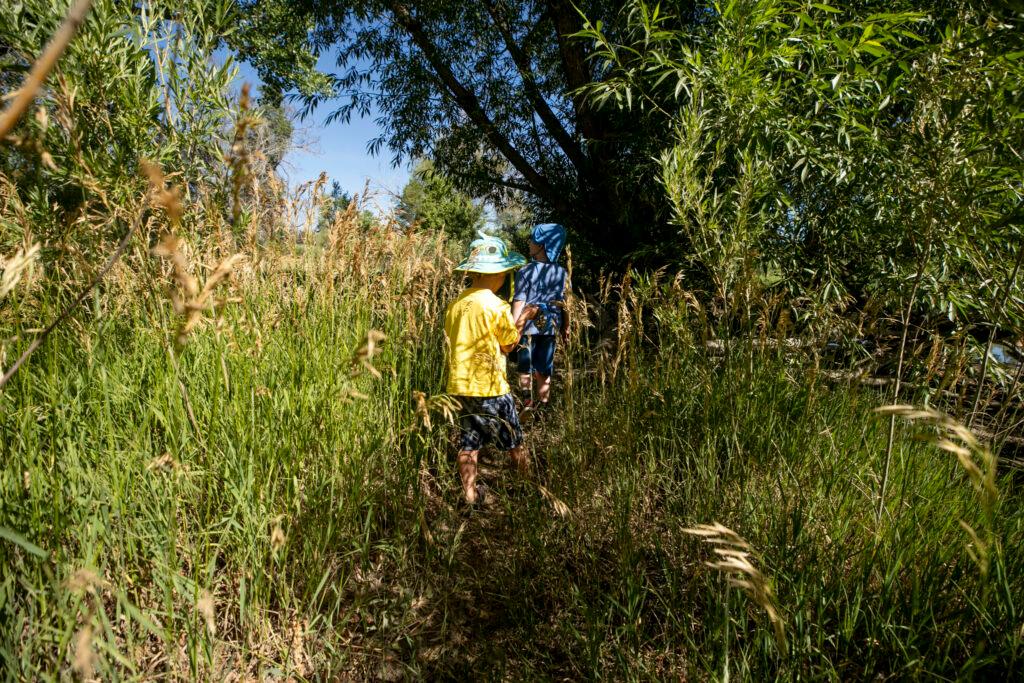
In short, children are developing resilience in an era when school leaders and mental health experts say children’s resilience has plummeted because of a risk-averse, adult-controlled style of parenting.
A growing body of research describes the consequences of the loss of free outdoor play time – from lack of knowledge of the outdoor world and the rise in obesity to rising anxiety and myopia rates. At a legislative hearing for the bill, occupational therapists and parents testified to the therapeutic benefits of learning outdoors.
Parent Rachael Chesin-Vermeulen testified that the development of her son, who has Down syndrome, has accelerated greatly over the past six months as a result of nature-based education.
“Caleb has stepped into a world where his potential can truly be unlocked…(He) has progressed from needing assistance to walk, to taking over 15 independent steps in his eagerness to run, explore, and interact with his surroundings.” She said Caleb’s verbal skills have also improved.
“Outdoor nature-based education stands as a beacon of hope for families like mine.”
Teachers also help with conflict resolution and encourage good social skills. Studies also show improved mental well-being and confidence in kids who learn outside; other research shows improved behaviors and symptoms of ADHD. Outdoor educator Jon Worthing said nature provides space – literally space – to fully feel and process emotions.
“The feel of the dirt, you can listen to the creek sound, you hear the birds, there’s a lot of things you can clue into to regulate yourself.”
Teaching children environmental stewardship
Down by the creek under the cottonwood trees, the children use all their senses. They watch a heron flying above. Their fingers feel the cool, squishy mud. They listen to the splash of water and how it changes when different-sized mud balls are tossed in. William, 4, explains what he likes best.
“Seeing all the creatures and learning what they do by watching them,” he said.
Parent Reeves Macdonald said being outside year-round — rain or shine — demystifies nature for his son, allowing him to experience it rather than just observe it. Macdonald volunteered recently and was struck by how given the space and freedom, kids will use any setting outside to share, play and learn.
“And then, as a result, they have a deep sense of independence,” Macdonald said.
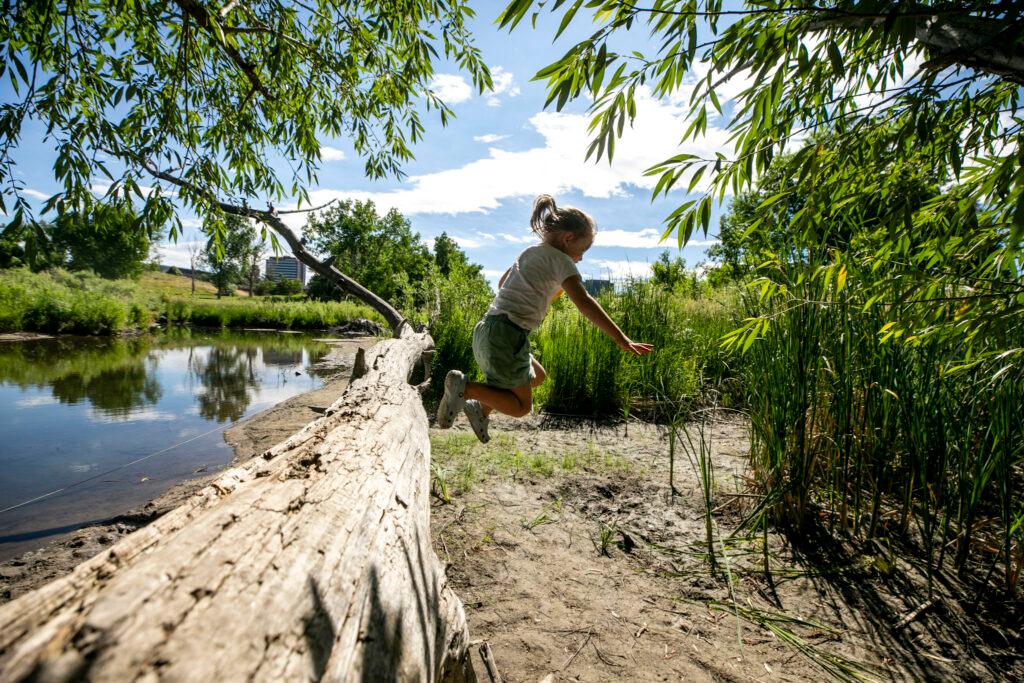
Like other parents, he’s noticed his son arrives home much calmer and more peaceful than he did in a traditional school.
When asked why they chose the program, several parents said it was because they wanted to give their children the same joy of discovery they had growing up.
Aubrey Newnam, who said she spent her entire childhood outside, said her daughter has the time to play and observe, bringing back little treasures she finds each day.
“So many people are doing just constant activities and there's no downtime,” said Newnam. “And I feel like for us it's helped not just her, but her parents to understand how to relax. Not everything has to be a constant go, go, go.”
Kollerup, the collective director, hopes that outdoor preschools can revitalize early childhood education, an industry that has been operating in survival mode for decades. She said they can be the pillar that gives today’s children who are inside and tech-addicted the balance they don’t have in their lives. After all, children have been playing outside for centuries.
“It’s something that's so cutting edge in early childhood and also completely ancient.”

